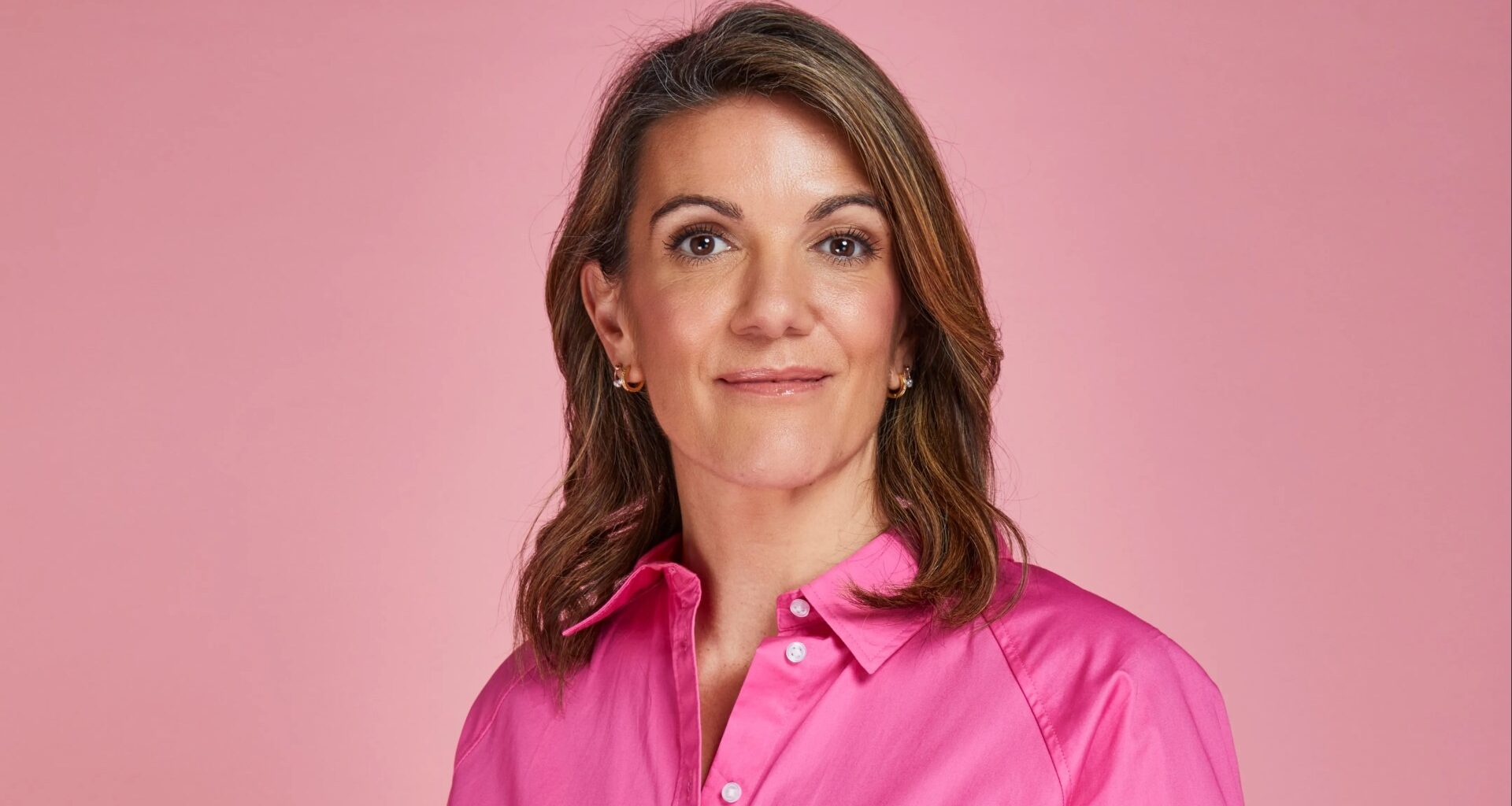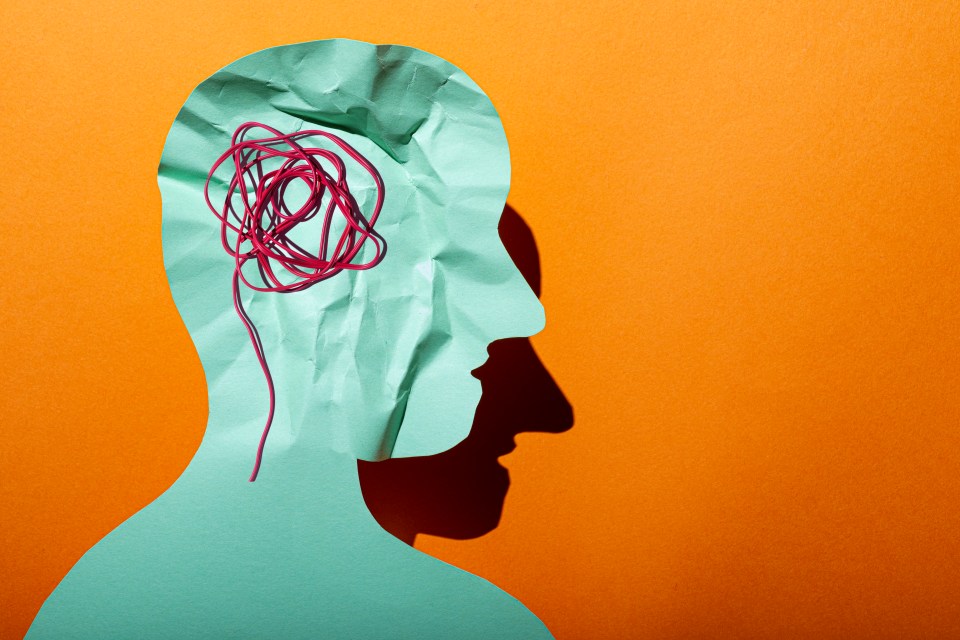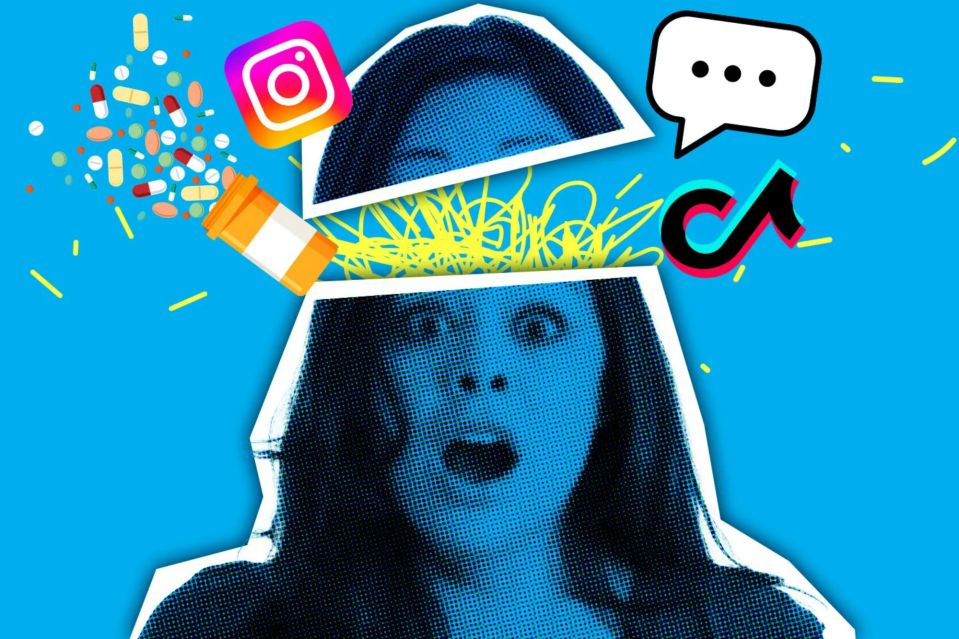ASKING Google “what is ADHD?” will yield over 131million results. I know because I did exactly that when I was diagnosed in March this year.
Born in the 70s, I was somewhat dismissive and naive about a lot of neurodivergence. But when a newly diagnosed friend assured me I had it, she joined a long list of people in the last decade who have suggested the same.
9
Clare O’Reilly was diagnosed with ADHD aged 46Credit: Lorna Roach
While I initially laughed off her advice, I did some research and realised I have pretty much all the traits.
I’m impulsive – I signed up to a marathon when I hadn’t even run 10km and am rowing the Atlantic in December having never been in a rowing boat.
If fidgeting were an Olympic sport, I’d be bringing home the gold.
I get frustrated waiting for people to get to the end of a sentence when I know what they’re going to say and have my answer ready.
I can be laser focused and juggle a massive number of tasks, or faced with full laundry baskets and life admin to do I’ll disappear down a wormhole of Instagram reels.
I’m in my element catering for 15 or more at Christmas yet the thought of a quiet afternoon with nothing on my list brings me out in the sweats.
Being told I had attention deficit hyperactivity disorder at age 46 only semi surprised me.
I have the inattentive hyperactive – or combined type.
As a woman in her 40s, I’m in the biggest diagnostic age category in the UK right now.
I’m also in the top six per cent of fidgeters in the country apparently, according to a computer screening tool and I’m not sure whether that’s something to brag about or be ashamed of.
Strictly and OnlyFans star John Whaite opens up on health struggle, saying ‘it makes life almost unbearable’
I’m not alone in my middle aged diagnosis though; Jessie J, 37, spoke about her diagnosis last summer, and Lily Allen, 40, Sheridan Smith, 44, and Paloma Faith, 43, have all been diagnosed recently too.
Since my diagnosis, I’ve done plenty of research. And while I don’t want to take medication for it at the moment, it’s all still pretty new to me, I’ve learned there are certain triggers where my neurodivergence looms large.
They’re not new to me as feelings but the cause of them is.
9
Lily Allen, 40, had to ‘completely switch off social media’ after her diagnosisCredit: Getty
9
Jessie J says motherhood ‘exposed’ her ADHD, and she now considers it her ‘superpower’Credit: Shutterstock Editorial
Dr Paul Wallang is a consultant psychiatrist and healthcare director at Clinical Partners and has over 20 years’ experience in assessing and managing neurodevelopmental conditions.
He says ADHD is often misunderstood and triggers can make the condition much more visible.
“ADHD is a complex neurodevelopmental condition,” he tells Sun Health.
“In many cases, medication is a key part of treatment and therapy can help unpack the emotional fallout of years of struggling.
“It’s not about ‘fixing’ someone – it’s about supporting focus, emotional balance and quality of life.”
While diet doesn’t cause ADHD, certain foods can significantly influence symptoms like hyperactivity, inattention, mood regulation, irritability, restlessness and brain fog
Dr Paul WallangPsychiatrist
The dictionary definition says ADHD is “a mental condition, beginning in childhood and often persisting into later life characterised by persistent difficulty in maintaining attention and concentration”.
“It is also frequently accompanied by hyperactive and impulsive behaviour,” it adds.
Having been diagnosed with both the inattentive and hyperactive kind, I’m the neurodivergent definition of feast or famine – I’ll plan trips away with military precision yet forget my passport before I leave.
I’ll go to make a cake only to find myself putting out the washing instead five minutes later because the ingredients are next to the washing machine.
Dr Wallang says there are seven identifiable triggers that make ADHD symptoms worse – from overstimulation to excessive screen use.
So how do they manifest with my experience of living with ADHD so far?
1. NO SNOOZE, YOU LOSE
THIS is something I relate to a lot. I joke that my sleep tracker is gaslighting me because it always tells me my sleep was too short to be effective.
I struggle to quieten my mind when my head hits the pillow and when I wake early or in the middle of the night with a racing mind, I cannot silence it.
It’s never anything important, it simply won’t shut down and I toss and turn because of it.
9
Many people with ADHD describe battling lots of ‘background noise’Credit: Getty Images – Getty
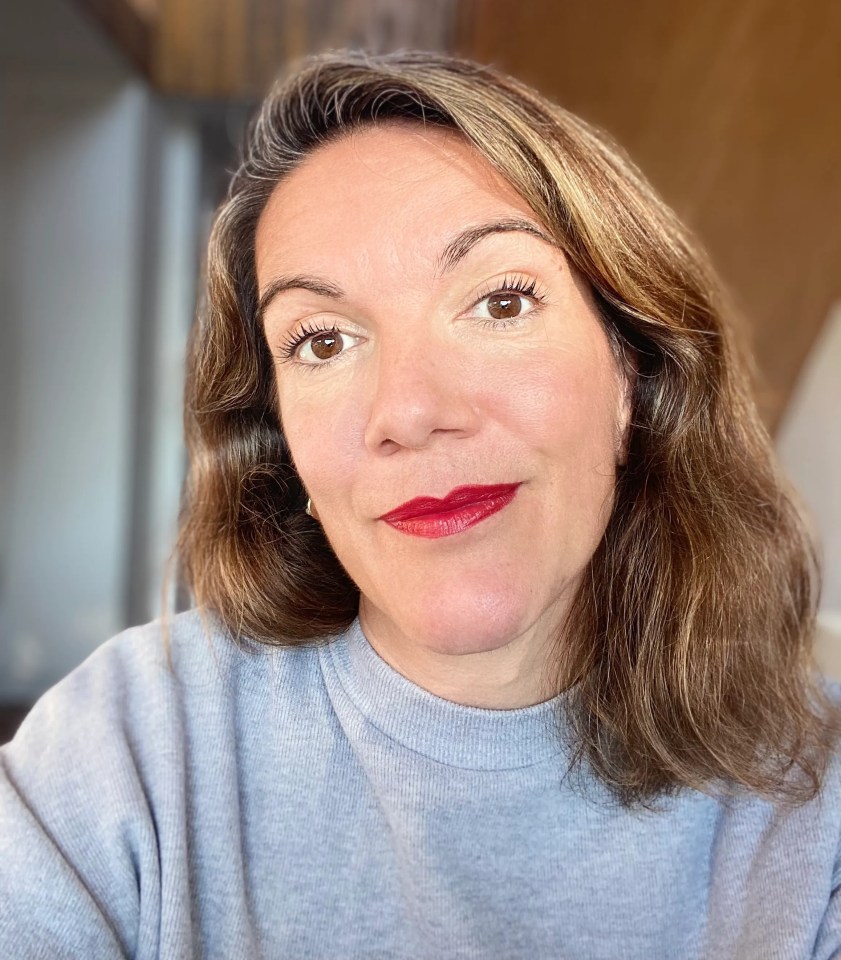
9
Clare often struggles to sleep because of her ‘racing mind’Credit: Clare O’Reilly
Dr Wallang says: “Sleep is fundamental for cognitive functions like attention, memory and emotional regulation – the very areas ADHD disrupts.
“Poor sleep magnifies inattention, impulsivity and mood swings, creating a vicious cycle.
“People with ADHD often have trouble falling asleep, staying asleep, or waking up feeling rested, which worsens symptoms.
“While good sleep hygiene is helpful, including consistent routines, reduced screen time and avoiding late caffeine, it’s not always enough.
“In such cases, tailored strategies like relaxation techniques, CBT for insomnia or reviewing medication timing may be more effective.”
2. DIET TRAPS
I EAT plenty of fresh fruit and vegetables and little to no processed food, but I do struggle with impulse control when it comes to unhealthy foods.
If I break the seal on cheese, crisps or chocolate, I’ll finish it all, which is why I try to stay away from it.
I have the occasional wine, but I do experience food crashes, and I struggle with being ‘hangry’ when I’m really hungry.
My emotional regulation seems better when I have a full belly and I’ve noticed I can’t problem solve as well if I’m hungry.
The rise in ADHD in women in their 30s and 40s
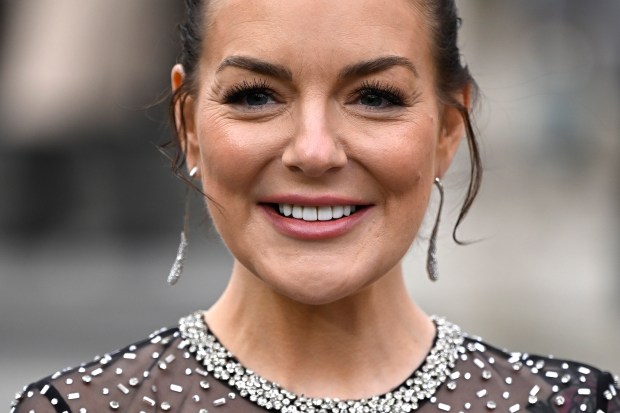
MOST women with ADHD don’t get diagnosed until their late 30s or early 40s, according to WedMD.
And the numbers are rising. Between 2020 and 2022, ADHD diagnoses nearly doubled in women aged 30 to 49.
Among them is Lily Allen, 40, who in 2023 said she had been diagnosed with ADHD.
The Smile singer said: “I’ve had to completely switch off social media because as soon as I look at it, it can be hours of my day gone.”
Meanwhile Sheridan Smith, 44, said her diagnosis had helped her understand her “brain’s background noise”.
“I never know what to say and I overthink,” she said, adding that she found herself “overanalysing” little things, like the “mums’ WhatsApp group” at her son’s school.
“[I’m called] Shadow Sheridan because all I do is lurk,” the Oliver award-winning actress said.
Paloma Faith, 44, was in a similar position. She said she spent her “whole life struggling with certain things” which began to take on new meaning after she received the eye-opening diagnosis in 2023.
“Lots of things start to add up,” the singer said. “When you go through the assessment process you’re like, ‘Oh my God, that’s part of it as well!’
“They start asking you these questions and you’re like, ‘I didn’t even think that was part of it’.”
Jessie J, 37, who was diagnosed after having her son Sky in 2023, said motherhood “exposed” her ADHD, but she now considers it her “superpower”.
“It’s made me re think about my whole life,” she added. “The way I’ve been, the way I deal with things. The relationships I have had. How I work and how I love.
“It’s empowered me and honestly sometimes has overwhelmed me all at the same time.”
Dr Wallang says: “Impulse eating and ‘food crashes’ are common in ADHD.
“Binge eating often stems from the impulsive drive for instant gratification, leading to overeating in short bursts.
“While diet doesn’t cause ADHD, certain foods can significantly influence symptoms like hyperactivity, inattention and mood regulation.
“Highly processed foods and excess sugar can trigger irritability, restlessness and brain fog.
“There’s also growing evidence connecting gut health to brain function via the gut–brain axis, suggesting an imbalanced diet could impact focus and emotional regulation.
“Regular, balanced meals can help maintain energy and mood, and people with ADHD should avoid long gaps between meals, limiting high-sugar or highly processed foods too.”
3. OVERSTIMULATION
TYPICALLY I thrive in and love a busy and loud environment.
But when I was on holiday last year, it all just got a bit too much and I had to sit away from noise and crowd.
It just felt like I was being talked to too much and asked for too many opinions or thoughts on things with not enough space.
Dr Wallang says: “The ADHD brain struggles to filter out irrelevant stimuli.
“When there’s too much going on – be it noise, visual clutter or background distractions – individuals can become overstimulated, making it even harder to focus, stay calm or complete tasks.
“Even for those used to high-energy settings, overstimulation can lead to mental fatigue.
9
Sheridan Smith, 44, found herself ‘overanalysing’ little things, like the “mums’ WhatsApp group” at her son’s schoolCredit: Getty
9
Paloma Faith says ‘lots of things started adding up’ after her diagnosisCredit: Getty
“Creating dedicated ‘optimal stimulation’ spaces can help.
“These might include a tidy, low-clutter environment or noise-cancelling headphones.
“Regular quiet breaks also allow the brain to recover and stay regulated.”
4. DOOMSCROLLING
I CAN be found falling into a real worm hole on even my busiest days with a big “to-do” list being ignored.
My screen time goes up when I’m busy and down when I’m quiet, which I don’t quite understand either.
Dr Wallang says: “Dopamine is a key player in ADHD – and social media delivers constant, rapid hits of it.
“This can lead to compulsive scrolling, difficulty sustaining focus and worsened self-esteem through comparison.
“It’s these quick dopamine hits which make social media especially appealing during busy or stressful times.
“Excessive screen time may add to mental overload though, so replacing digital input with healthier dopamine sources – like movement, creativity or face-to-face connection – supports better emotional balance.”
5. TIMES OF LIFE
I’M of an age where perimenopause is a thing, yet I’m still having regular periods.
While I never know when my time of the month is coming, my partner always gets a sense of it because of a mood shift.
I can see it afterwards but never at the actual time.
9
People with ADHD often feel overwhelmed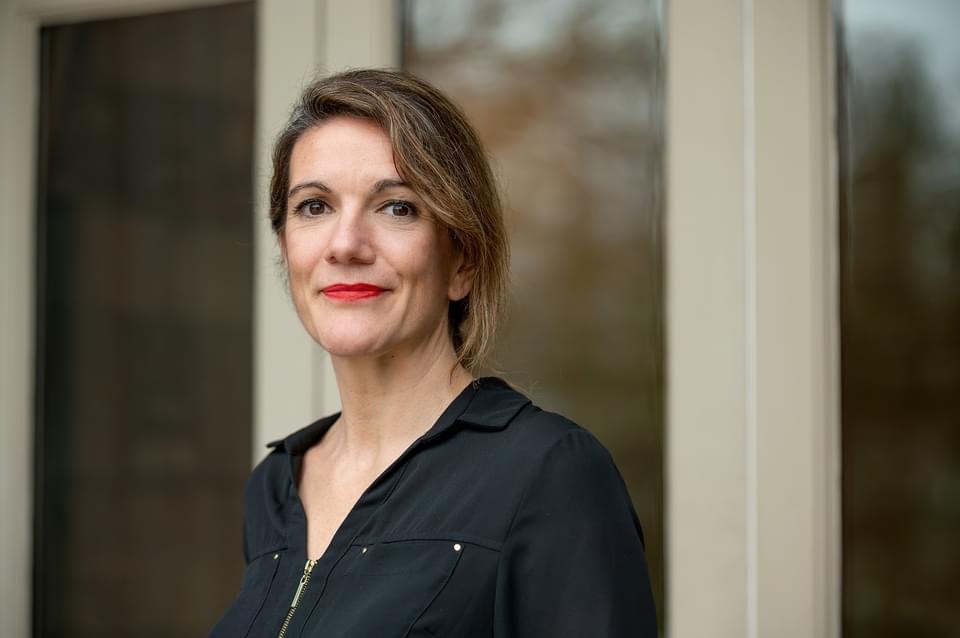
9
Clare thrives in a busy environment, but sometimes it all gets too muchCredit: Clare O’Reilly
Dr Wallang says: “Hormones like oestrogen and progesterone interact with neurotransmitters that influence ADHD symptoms.
“This is especially relevant for women in times of hormonal fluctuation – such as puberty, pregnancy, the menstrual cycle, and menopause.
“Hormonal fluctuations during perimenopause can significantly impact mood and ADHD symptoms.
“Tracking your cycle to spot patterns is helpful.
“Discussing hormone-sensitive treatment options with your GP or specialist, alongside lifestyle adjustments and targeted support during hormone dips, can make a meaningful difference.”
6. ROUTINE FLUNKY
I’M a feast or famine kinda gal when it comes to routine.
You can either set your watch by my training and gym time or I turn into a sloth.
I hate being told what to do and I thrive without routine more than with it.
That said, I have three children and three dogs, so routine is inherently part of my day!
The 9 ‘hidden’ signs of ADHD in adults
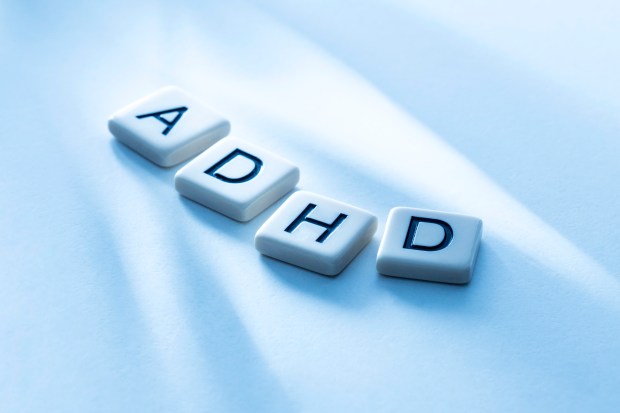
ADHD has long been associated with naughty schoolkids who cannot sit still in class.
And that is part of it. Fidgeting, daydreaming and getting easily distracted are all symptoms of the behavioural condition, which is why it is often spotted in children.
However, attention deficit hyperactivity disorder is far more complex than simply having trouble focusing.
Henry Shelford, CEO and co-founder of ADHD UK, says: “If it isn’t debilitating, it isn’t ADHD.”
In recent years, social media has given rise to trends which conflate specific personality traits or single behaviours with ADHD.
You might be thinking, ‘I’m always losing my keys, forgetting birthdays and I can never concentrate at work — I must have ADHD’. But it’s not as simple as that.
Though these may all point to the condition, Dr Elena Touroni, a consultant psychologist and co-founder of The Chelsea Psychology Clinic, says: “The key distinction lies in how much a behaviour impacts a person’s daily life.
“Genuine ADHD symptoms affect multiple areas of life – work, relationships and emotional wellbeing – whereas personality traits are typically context-dependent and less disruptive.”
ADHD UK’s Henry, who has the condition himself, adds: “Having ADHD is hard. One in ten men with ADHD and one in four women with ADHD will at some point try to take their own lives.”
So how can ADHD manifest in someone’s life? While hyperactivity is a common indicator, here are nine other subtle signs:
- Time blindness – losing track of time, underestimating how long tasks will take, regularly being late or excessively early
- Lack of organisation – a messy home, frequently misplacing items, forgetting deadlines
- Hyperfocus – becoming deeply engrossed in activities for hours
- Procrastination – feeling overwhelmed by to-do lists and struggling to determine what needs your attention first so focusing on less important tasks
- Heightened emotions – emotional struggles can manifest in angry outbursts, feeling flooded with joy or shutting down because you feel too much at once
- Being a ‘yes man’ – agreeing to new projects at work or dinner dates with friends when you’re already busy (a desire to please)
- Impatience – interrupting people mid-conversation, finding it painful to stand in a queue, being overly-chatty
- Restlessness – tapping, pacing, fidgeting or feeling restless on the inside
- Easily distracted – by external things, like noises, or internal things like thoughts
Dr Wallang says: “People with ADHD often thrive on structure, even if they resist it.
“A lack of routine creates unpredictability – and that’s when disorganisation, missed deadlines and emotional overwhelm can spiral.
“While some may seem to thrive without strict routines, many benefit from simple, repeatable daily habits.
“Even small anchors – like a walk with the dogs or cooking a family dinner – can reduce decision fatigue and help the brain feel more grounded.
“These healthy habits also support physical and mental wellbeing, which is especially important for managing ADHD.”
7. GLASS HALF EMPTY
A NEGATIVE mindset is something I relate to a lot.
I constantly feel like I’m the problem, like things are my fault, like I’m too much or I’ve done something wrong.
I always worry that any given consequence is because of something I’ve done or not done, even when the sensible part of me knows that can’t be the case.
I worry a lot about things that might go wrong, lack confidence and doubt my success too.
Dr Wallang says: “Self-criticism, shame and a belief that you’re ‘lazy’ or ‘not good enough’ are sadly common in adults with ADHD – especially those diagnosed later in life.
“This kind of thinking triggers stress responses and avoidance, fuelling the very behaviours people want to change.
“Being kind to yourself is essential; ADHD is a neurodevelopmental condition, not a character flaw or failure.
“Learning to replace blame and guilt with understanding and self-compassion can ease emotional burden.”
How to get help
UNFORTUNATELY, a GP cannot formally diagnose ADHD but they can refer you for a specialist assessment.
Be warned, the wait can be long. Data suggests there are at least 196,000 adults on waiting lists across the UK.
And a BBC investigation found in many areas it would take at least eight years to clear the backlog.
For an adult to be diagnosed with ADHD, the NHS says their symptoms should have a moderate effect on different areas of their life, such as underachieving at work or having difficulties in relationships, and the person has been displaying symptoms continuously for at least six months.
There must also be evidence symptoms have been present since childhood – it’s thought that the condition cannot develop for the first time in adults.
After a diagnosis, treatment can include psychological therapies, psychotherapy, social skills training and medication.
For many, a diagnosis can be a relief, but also unravel mixed emotions and feelings of ‘being different’.
ADHD UK has information on considering diagnostic pathways and can offer support.
